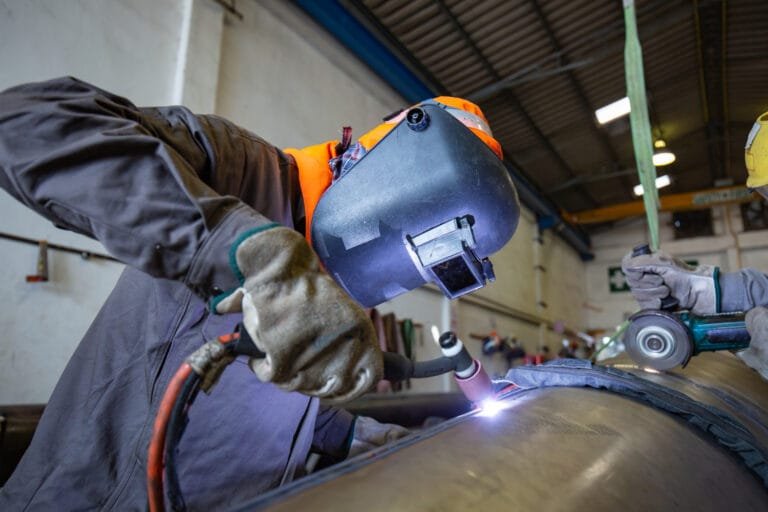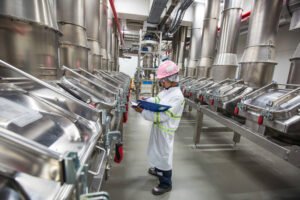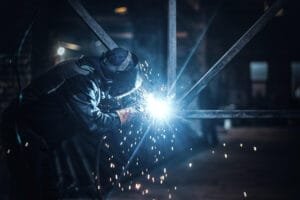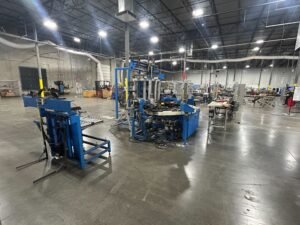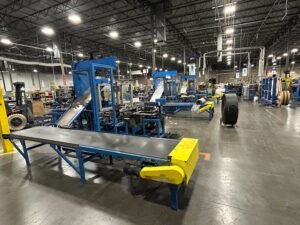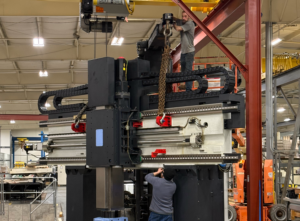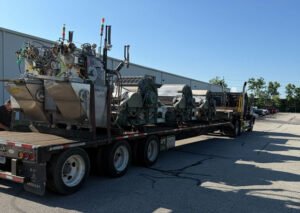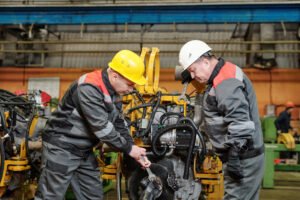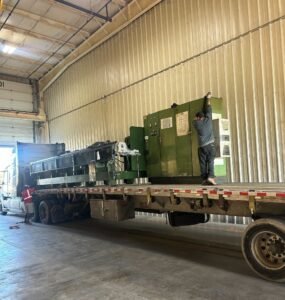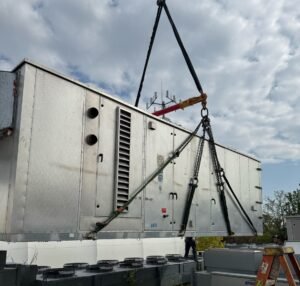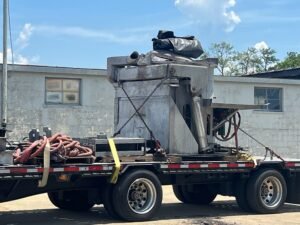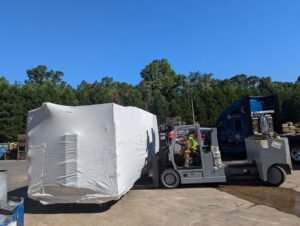Fabrication is at the heart of modern manufacturing, playing a crucial role in producing high-quality, durable, and efficient products across various industries. From automotive to aerospace, construction to consumer electronics, fabrication processes ensure precision, efficiency, and cost-effectiveness. As manufacturing evolves with technological advancements, the significance of fabrication has only increased, integrating automation, robotics, and digital technologies to enhance production capabilities.
In this comprehensive article, we will explore the various aspects of fabrication, its importance in modern manufacturing, the different techniques involved, and how companies like Alltracon lead the industry with top-tier fabrication services in the U.S. market.
Understanding Fabrication in Manufacturing
What is Fabrication?
Fabrication is the process of creating products or components by cutting, bending, assembling, and joining raw materials like metal, plastic, or composites. Unlike machining, which involves removing material from a solid block, fabrication focuses on shaping and assembling materials to form a final product.
The Importance of Fabrication in Manufacturing
Fabrication plays a vital role in modern manufacturing by:
- Enhancing Production Efficiency – Enables mass production with high precision.
- Improving Product Durability – Ensures strength and longevity of manufactured components.
- Reducing Costs – Optimizes raw material usage and minimizes waste.
- Supporting Customization – Allows for tailored solutions based on client requirements.
Industries such as construction, automotive, aerospace, and energy rely heavily on fabrication to produce essential components.
Key Fabrication Processes
Cutting
Cutting is one of the first steps in fabrication, where raw materials are shaped into the required dimensions. Modern manufacturing employs various cutting techniques, including:
- Laser Cutting – Uses high-energy laser beams for precision cutting.
- Plasma Cutting – Involves electrically conductive gas for metal cutting.
- Waterjet Cutting – Uses high-pressure water mixed with abrasives to cut materials.
Bending and Forming
Bending is essential for shaping metal sheets into desired forms using press brakes, rollers, and stamping machines. Forming techniques like rolling, extrusion, and forging are used to create complex geometries.
Welding and Joining
Welding is a fundamental process in fabrication, ensuring strong and durable joins between metal components. Common welding techniques include:
- MIG Welding – Ideal for thick materials and high-speed applications.
- TIG Welding – Provides precise and high-quality welds.
- Arc Welding – Used in heavy industries for robust joining.
Other joining methods, such as riveting and adhesive bonding, are used for non-metal materials.
Machining and Finishing
Machining processes, such as milling, drilling, and turning, refine fabricated components to meet strict tolerances. Surface finishing techniques like polishing, anodizing, and powder coating enhance the durability and appearance of the final product.
Advanced Fabrication Technologies
Automation and Robotics in Fabrication
Modern fabrication increasingly relies on automation and robotics to improve precision and efficiency. Robotic welding, automated cutting machines, and AI-powered inspection systems ensure faster production with minimal errors.
3D Printing and Additive Manufacturing
Additive manufacturing (3D printing) is transforming fabrication by enabling rapid prototyping and complex component production. Metal 3D printing allows for lightweight yet strong structures in aerospace and medical industries.
Smart Manufacturing and IoT Integration
The Internet of Things (IoT) enables real-time monitoring and predictive maintenance of fabrication equipment, reducing downtime and improving efficiency. Smart factories leverage AI-driven insights for process optimization.
Applications of Fabrication Across Industries
1. Automotive Industry
Fabrication plays a key role in producing vehicle frames, engine components, and exhaust systems with high precision and durability.
2. Aerospace and Defense
Aircraft and defense equipment require high-strength materials and intricate fabrication processes for safety and performance.
3. Construction and Infrastructure
Structural steel fabrication is crucial for bridges, buildings, and industrial structures, ensuring strength and longevity.
4. Energy Sector
Fabrication is essential for manufacturing pipelines, wind turbines, and solar panel frames for renewable energy projects.
5. Medical Equipment Manufacturing
Precision fabrication enables the production of surgical instruments, implants, and diagnostic devices with strict quality control.
Challenges in Modern Fabrication
Despite its benefits, fabrication faces several challenges:
- Material Costs – Fluctuating raw material prices affect production costs.
- Skilled Labor Shortage – Demand for experienced fabricators is high.
- Technological Adaptation – Integrating new technologies requires investment.
- Sustainability Concerns – Reducing waste and energy consumption is a priority.
Companies that invest in automation, skilled workforce training, and sustainable practices gain a competitive advantage.
Alltracon: The Best Fabrication Service Provider in the U.S.
When it comes to top-tier fabrication services, Alltracon stands out as a market leader in the U.S. With years of experience and a commitment to quality, Alltracon provides cutting-edge fabrication solutions tailored to various industries.
Why Choose Alltracon?
✅ Advanced Technology – Utilizes the latest CNC machines, laser cutting, and robotic welding.
✅ Skilled Workforce – A team of highly trained professionals ensuring precision and efficiency.
✅ Custom Solutions – Offers tailored fabrication services to meet unique client requirements.
✅ Fast Turnaround – Ensures on-time project completion without compromising quality.
✅ Commitment to Quality – Implements stringent quality control measures to deliver the best products.
From small custom parts to large-scale industrial fabrication, Alltracon ensures excellence, making it the preferred choice for manufacturers across the U.S.
Conclusion
Fabrication is the backbone of modern manufacturing, driving efficiency, precision, and innovation across industries. As technology evolves, the integration of automation, 3D printing, and smart manufacturing will further enhance fabrication capabilities.
Companies like Alltracon play a vital role in delivering high-quality fabrication services, helping industries achieve superior product performance and reliability. Whether in automotive, aerospace, construction, or energy sectors, choosing the right fabrication partner is crucial for success.
With expert solutions, state-of-the-art technology, and a customer-centric approach, Alltracon remains the best service provider in the U.S. for all fabrication needs.
